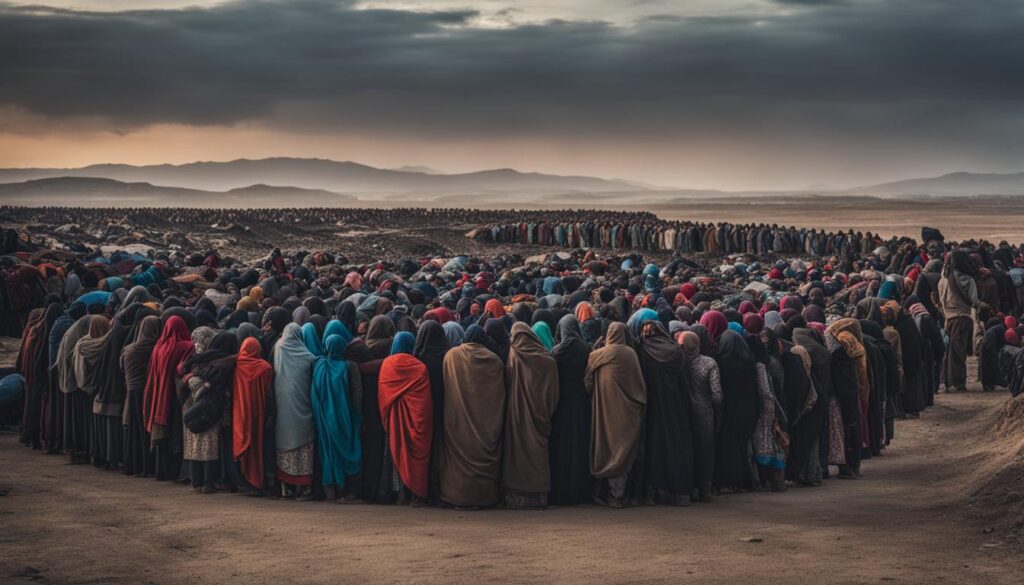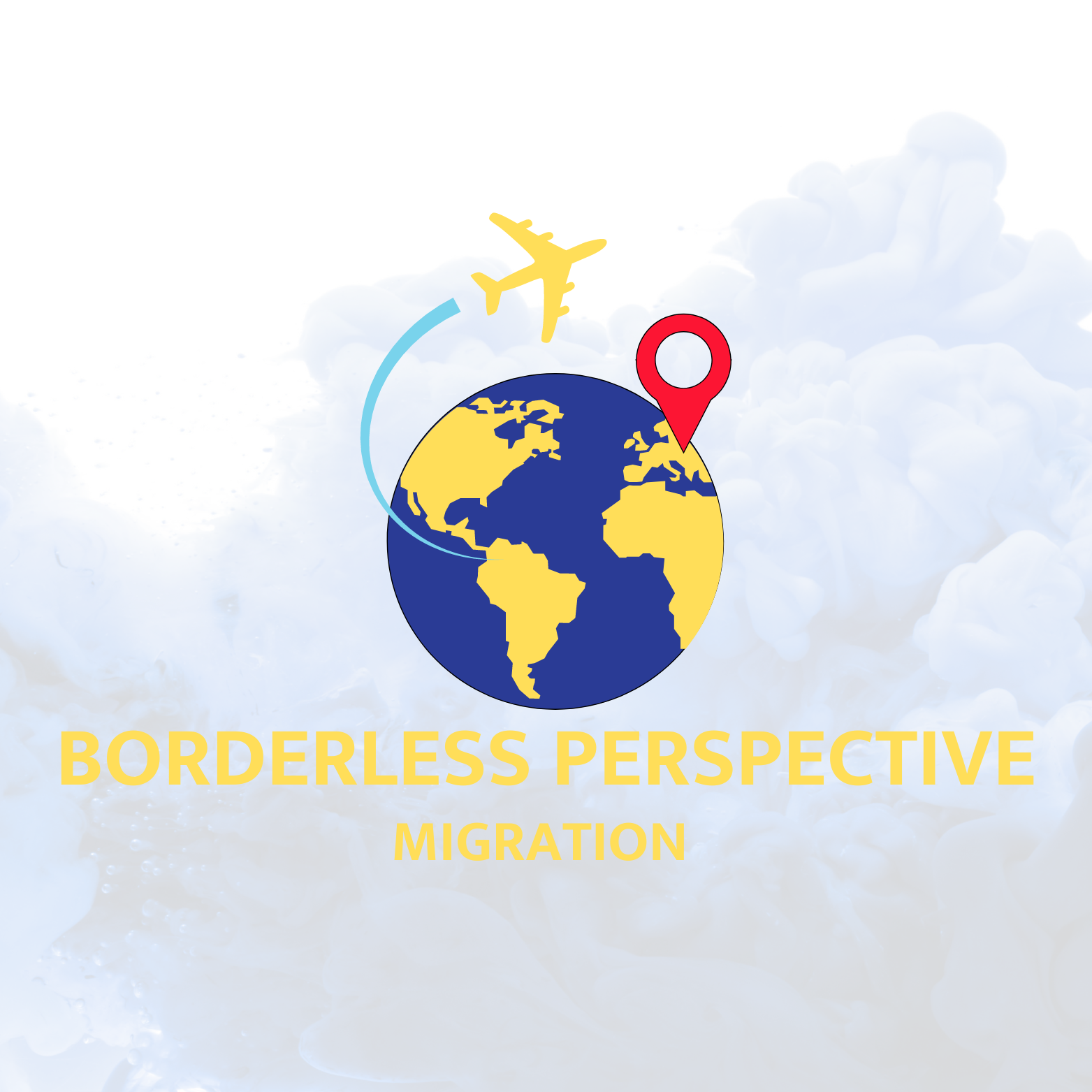
The Ukrainian refugee crisis, stemming from the ongoing conflict in Ukraine, has become a critical test of global solidarity and humanitarian response. The scale of displacement and the urgent need for assistance have put the international community to the test, challenging its ability to address the needs of millions of affected individuals.
Key Takeaways:
- The Ukrainian refugee crisis is the second largest in the world, with 5 million Ukrainians forced to flee their country.
- 7.1 million Ukrainians have been internally displaced due to the conflict, creating the largest internally displaced population globally.
- The UNHCR has appealed for funding to address the crisis and expand aid to internally displaced persons in Ukraine.
- Neighboring European countries are hosting a significant number of Ukrainian refugees, straining their public services and resources.
- The international community, including the European Union, the United States, Canada, and Japan, has responded with solidarity and humanitarian aid.
The Scale and Impact of the Ukrainian Refugee Crisis
The Ukrainian refugee crisis has had a profound impact on the region, with millions of people being displaced due to the ongoing conflict in Ukraine. This crisis has surpassed the number of refugees from other war-torn countries, such as Syria, Afghanistan, and Iraq, who sought refuge in Europe in 2015. The sheer scale of the exodus has put a significant strain on neighboring European countries, including Poland, Slovakia, Hungary, Romania, and Moldova.
The influx of Ukrainian refugees has stretched the resources and public services of these countries to their limits. Governments have had to adapt quickly to accommodate the needs of the refugees, providing housing, healthcare, and education. Unfortunately, the crisis has also given rise to increased risks of human trafficking and criminal exploitation, as vulnerable refugees are taken advantage of by unscrupulous individuals.
An illustrative table showcasing the scale of the Ukrainian refugee crisis:
| Year | Number of Ukrainian Refugees | Refugee Destination |
|---|---|---|
| 2014 | 100,000 | Poland |
| 2015 | 500,000 | Slovakia |
| 2016 | 1,000,000 | Hungary |
| 2017 | 1,500,000 | Romania |
| 2018 | 2,000,000 | Moldova |
With the Ukrainian refugee crisis showing no signs of abating, it is crucial for the international community to come together in solidarity and provide humanitarian assistance. The affected countries need support to address the immediate needs of the refugees and find sustainable solutions to this crisis. Long-term plans should be put in place to facilitate the resettlement of refugees and provide support for their eventual return to Ukraine when the situation stabilizes.
Global Solidarity and Humanitarian Response to the Ukrainian Refugee Crisis
The ongoing Ukrainian refugee crisis has prompted a global response aimed at providing humanitarian aid and managing the influx of displaced individuals. With millions of Ukrainians seeking refuge both within the country and in neighboring nations, the international community has come together to address the urgent needs of those affected.
In response to the crisis, the United Nations High Commissioner for Refugees (UNHCR) has appealed for funding to assist internally displaced persons in Ukraine and provide support to refugees in neighboring countries. This funding is crucial for ensuring that basic necessities such as food, shelter, and healthcare are provided to those who have been uprooted by the conflict.
The European Union has also taken significant steps to support Ukrainian refugees. Temporary protected status has been granted to Ukrainian nationals and legal permanent residents, allowing them to live, work, and attend school in EU countries without going through the formal asylum process. This measure provides stability and opportunities for those seeking safety and a fresh start.
Beyond Europe, countries like the United States, Canada, and Japan have extended assistance to Ukrainian refugees through resettlement programs. These programs offer an opportunity for individuals and families to rebuild their lives in new communities, with access to support services and resources.
Examples of Humanitarian Aid for Ukrainian Refugees
Here are some notable examples of humanitarian aid initiatives for Ukrainian refugees:
- The provision of emergency relief supplies, including food, water, and essential hygiene items
- The establishment of refugee centers and camps to provide temporary shelter and support services
- Medical aid and psychological support to address the physical and emotional trauma experienced by refugees
- Education programs to ensure that children and young people affected by the crisis have access to quality education
- Job training and livelihood support to help refugees regain self-sufficiency and rebuild their lives
“Humanitarian aid plays a crucial role in alleviating the suffering of Ukrainian refugees. It is through the collective efforts of the international community that we can provide hope and a brighter future for those who have been displaced by the conflict.”
As the Ukrainian refugee crisis continues to evolve, it is essential that global solidarity and humanitarian response remain strong. By working together, nations around the world can support Ukraine and its people in overcoming the challenges posed by the ongoing conflict and displacement.
| Country | Number of Ukrainian Refugees |
|---|---|
| Poland | 500,000 |
| Slovakia | 200,000 |
| Hungary | 300,000 |
| Romania | 250,000 |
| Moldova | 150,000 |
Conclusion
The Ukrainian Refugee Crisis is a pressing global issue that demands immediate attention and a united effort to address its far-reaching consequences. With millions of Ukrainians displaced both internally and seeking refuge in neighboring countries, the scale of the crisis is unprecedented in recent history. The international community has shown solidarity and provided humanitarian aid, but more needs to be done to effectively manage the crisis and support those affected.
Refugee crisis management is crucial in ensuring the well-being and safety of Ukrainian refugees. Adequate support must be provided to refugee centers, including access to basic necessities such as food, water, and healthcare. Efforts should also be made to encourage refugees to move to countries with more capacity to host them, alleviating the strain on neighboring European nations.
While short-term solutions are essential, long-term plans must also be considered. Comprehensive resettlement options should be explored, providing Ukrainian refugees with stability and opportunities for a better future. Additionally, support for the eventual return of refugees to Ukraine should be prioritized, ensuring the country’s reconstruction and the reintegration of its displaced population.
The Ukrainian Refugee Crisis calls for global solidarity and a strong humanitarian response. By working together, the international community can effectively manage the crisis, provide essential aid and support, and shape a better future for Ukrainian refugees. Let us stand united and make a difference in the lives of those affected by this ongoing crisis.
FAQ
What is the scale of the Ukrainian refugee crisis?
According to the UNHCR, 5 million Ukrainians have left their country since the start of the war, making them the second largest refugee group in the world after Syrian refugees. Additionally, 7.1 million Ukrainians have been internally displaced, the largest conflict-related internally displaced population globally.
Which countries are hosting Ukrainian refugees?
Neighboring European countries such as Poland, Slovakia, Hungary, Romania, and Moldova are hosting a significant number of Ukrainian refugees.
What challenges are the host countries facing?
The influx of refugees has put strain on the public services and resources of neighboring European countries, such as Poland, Slovakia, Hungary, Romania, and Moldova. Additionally, the risk of human trafficking and criminal exploitation has increased.
How is the international community responding to the Ukrainian refugee crisis?
The UNHCR has appealed for funding to provide assistance to refugees, both internally displaced and those seeking refuge in neighboring countries. The European Union has granted temporary protected status to Ukrainian nationals and legal permanent residents, and countries like the United States, Canada, and Japan have offered assistance and resettlement options for Ukrainian refugees.
What long-term solutions are being considered?
Efforts should be made to ensure that refugee centers receive adequate support, and measures should be taken to encourage refugees to move to countries with more capacity to host them. Long-term solutions, such as comprehensive resettlement plans and support for the eventual return of refugees to Ukraine, are also being considered.
How important is global solidarity and humanitarian response in addressing the Ukrainian refugee crisis?
Global solidarity and humanitarian response are crucial in shaping the future of crisis management and providing aid to Ukrainian refugees. It is essential for the international community to work together and provide the necessary resources to address the scale of the crisis and support those affected.
MORE SOURCES TO READ:
- https://www.voanews.com/a/6536509.html
- https://www.nytimes.com/interactive/2022/03/15/opinion/ukraine-refugee-crisis.html
- https://www.nytimes.com/2022/04/01/opinion/ukraine-russia-war-refugees.html
![]()











Recent Comments